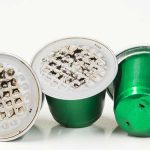The NHS has approved the use of a digital test to speed up the diagnosis of attention-deficit hyperactivity disorder (ADHD) in children, following successful trials by the National Institute for Health and Care Research (NIHR).
ADHD affects an estimated 3-5% of school-age children who exhibit symptoms of inattention, impulsivity, and hyperactivity, making it a complex condition to diagnose. The use of the QbTest alongside existing methods has shown improvements in assessments, reducing the time taken to reach a diagnosis from 18 months to within six months.
The National Institute for Health and Care Excellence (NICE) issued draft guidance in July 2024, approving the use of the QbTest for diagnosing ADHD in children and young people. The test involves the child responding to specific stimuli while a camera tracks their movements, comparing the results to a control group.
Initial trials funded by the NIHR have shown that the QbTest can expedite the diagnostic process, with a higher likelihood of reaching a decision within six months. This technology has been embraced by 70% of NHS services for ADHD in children and young people.
Looking ahead, NIHR Applied Research Colloboration (ARC) East Midlands is investigating how the QbTest can also aid in the treatment of ADHD, not just in diagnosis.






